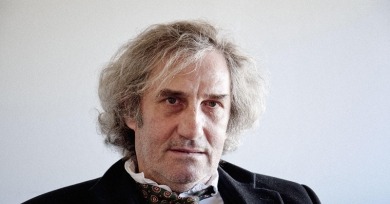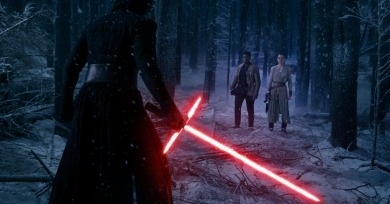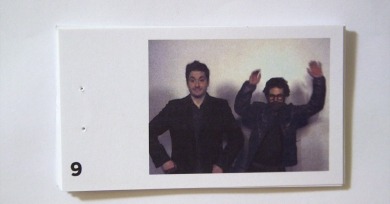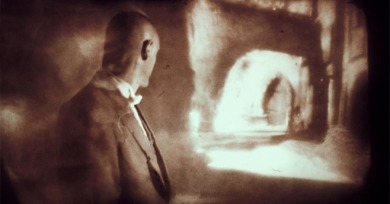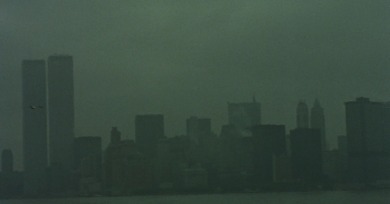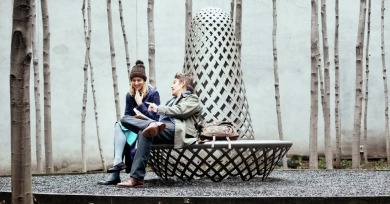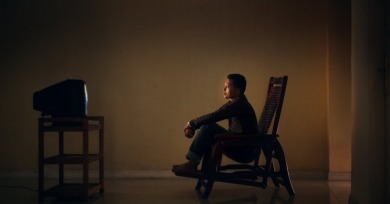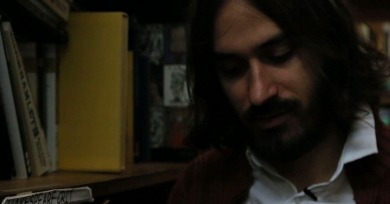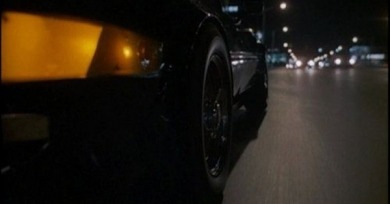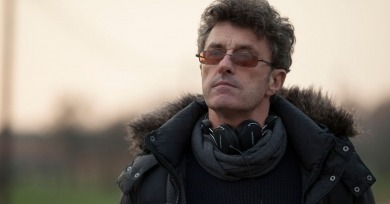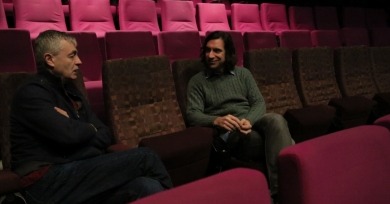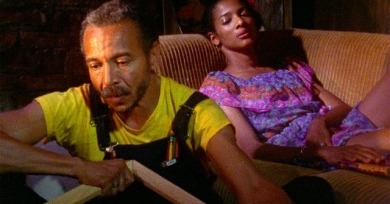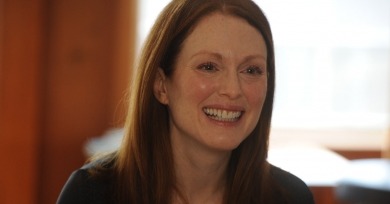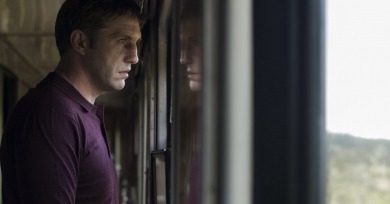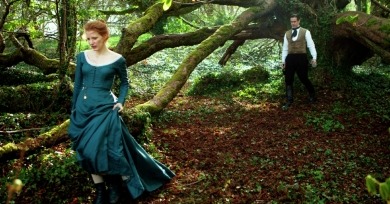Eric Hynes
I have no theory on my own film. You know, cinema is gestural; this is what it has in common with dance or with painting. You take your camera, and people, and you write something with that, that resembles life.
There were times when the existential dread was so rough that I would have traded some good old sexual anxiety for it. It is a pretty horrific thing to discover that we might be finite mortals. There were moments in college when I would have given anything to be a struggling queer Christian.
Movies are made of proven entities to minimize risk, but that transfers the stakes from making something good to making something that meets the expectations for what it is supposed to be.
Kaufman and Johnson tour the galleries of the Museum of the Moving Image with host Eric Hynes. They contemplate early cinematic techniques of motion capture and ponder whether the puppets in their stop-motion animation drama Anomalisa might have been "faking it" on set.
When I’m preparing for the film, I don’t think in terms of creating this world where there’s what you’re describing. My main role is that I want it to be as realistic as possible. So what I shoot on set might not be what happens in the edit.
“We were like mediums at a paranormal séance, the whole presentation is spoken in our voices. What we chose, what we didn’t choose, what interested us, what we riffed on, sometimes what we just dreamt or felt, or hated, or wanted to strangle…”
Akerman was a Belgian filmmaker transplanted to New York when she made News from Home, yet she communicated something very close to exactly what I felt and continue to feel as a Staten Islander.
Eric Hynes shoots pool and talks shop with Bill and Turner Ross in Columbia, Missouri, where the Ross's Western screened at the 2015 True/False Film Fest.
Structurally, this is classic screwball material, and Maggie’s doomed-to-fail-but-also-kinda-succeed solution should be a hoot to watch unfold. Unfortunately it is not, and the reasons for this are almost too many to track.
What started in 1994 as a two-day, modestly attended, parochially English affair has, in the decades following, tripled in length, welcomes more than ten times the number of visitors, and is now a tent-pole event on the international documentary industry calendar.
As with Claude Lanzmann’s Shoah, another masterpiece dedicated to present-day witnessing, to chasing the ghosts of atrocity across the living landscape of our ruined humanity, it’s important not to overlook the extraordinary artistry that allows for such extra-cinematic effects.
Director Matías Piñeiro browses the aisles of a Greenwich Village bookstore with host Eric Hynes to talk about adaptation as an art of taking liberties, the beauty of mess, and his ongoing relationship with William Shakespeare, whose plays have inspired many of his films, including his latest, The Princess of France.
Rather than pursue an argument against the ascendancy of widescreen TV, or against television’s 21st-century golden age, I’d instead like to direct your attention to a time when ambitious television shows didn’t have recourse to the widescreen mode, distinguishing themselves within the 4:3 standard.
It was when winter finally started conceding to spring, with arctic temperatures reversing course overnight into short-sleeve weather and blinding sunshine, that word came through that Albert Maysles had passed away.
"Cinema is some kind of magical exercise that creates a world and draws the audience in, and they have to experience something emotionally, rather than something for journalists to discuss. I’m not making it to be a discussion piece."
In this Reverse Shot Talkie, host Eric Hynes and director Steve James emulate an episode of At the Movies to pay tribute to its hosts, Gene Siskel and Roger Ebert; Ebert's writing legacy; and James's documentary about Ebert, Life Itself.
As crucial as it is to reclaim Losing Ground as a vital, vibrant, retroactively canonical independent film by an African American female director—made when African American female directors were even scarcer than they are now—it’s no less crucial to view Collins’s film on its own defiantly individualistic terms.
It’s a face that obviously looks great at a glance—she’s served as a print model for L’Oréal and Bulgari—but to truly appreciate its power we need time. Julianne Moore’s face—and all that it conveys, conceals, and emblematizes—demands the dimensions of cinema.
The degree to which its resignation reflects the film’s point of view, and not just of its beleaguered characters, is an unsettled ambiguity at the heart of Andrei Zvyagintsev’s extraordinarily accomplished movie.
There are very few “cinematic” moves in Liv Ullmann’s Miss Julie, but every last one lands like a blow, forces you to re-find your footing. Choices carry more weight when there are less of them, and Ullmann doesn’t make any of these choices lightly.
